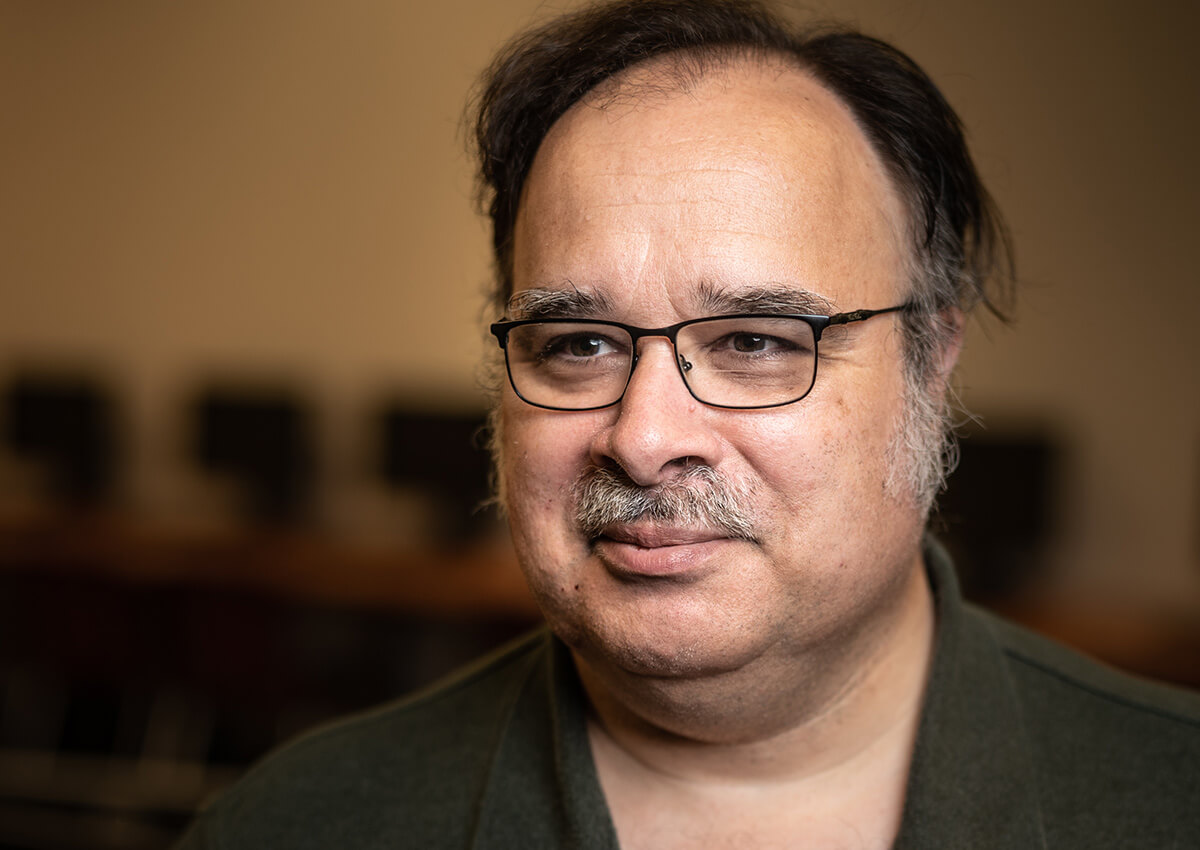“There were days at my previous job where the only difference between doing my job and committing a felony was the fact that I had permission from the computer system’s owner to hack it.”
- Dr. Glyn Gowing, LETU
Listen to the full interview with Dr. Gowing here: https://soundcloud.com/letourneauuniversity/cyber
With the prevalence of computerized business systems in stores, banks and government offices, this increase in computer-related crime raises concerns for privacy and safety.
Modern smart phones are more powerful than the computers that put men on the Moon. The smartphone is connected to the Internet along with businesses, banks, government offices, charities, churches and educational institutions. People want the convenience of being able to access their data in near real time, but that convenience comes with risks—those same networks that allow for convenient legitimate access also allow criminals ready access to those same resources.
Cybersecurity is a growing field, with an estimated 28% job growth anticipated from 2016 to 2026 for information security analysts and demand expected to remain “very high,” according to 2018 Bureau of Labor Statistics.
New cybersecurity programs are designed to meet this need by educating students to be prepared to take on the challenges faced in the modern, networked world.
LeTourneau University offers a needed approach to cybersecurity by combining solid academics and skills with Christian ethics to prepare students to use their newly-gained skills while considering eternity.
Cybersecurity professionals have and use many of the same skills as cybercriminals, but instead use these skills to secure systems and protect data, instead of committing crimes. These valued professionals prevent and respond to crimes. In Psalm 19:7-10 we see that “The Law of the LORD is perfect” and that “The judgments of the LORD are true and righteous altogether.”
LeTourneau’s emphasis on integrating faith into “Every workplace, every nation” is critical in preparing cybersecurity professionals for the field.
The growing prevalence of cybercrime is the evidence of what happens when people without a godly world-view acquire certain technical skills. We need people with solid Christian ethics involved in these fields to use these potentially dangerous skills to pursue a higher calling, one in which they embody the exhortation in First Corinthians 10:31, “Whatever you do, do it all for the glory of God.”
Someone who takes Jesus’ words of “Do to others as you would have them do to you” (Luke 6:31) and “Love your neighbor as yourself” (Mark 12:31) as guiding principles for life would be less likely to abuse these skills for personal gain.
As with any position of trust, such as cyber security, police, physicians, teachers, etc., it is important to be able to trust the person’s moral and ethical foundation. A strong Christian faith with a consistent walk with Christ provides that foundation. It is evident in how that person lives, which, in turn, engenders trust and confidence in that person’s motivations and resolve to act in an ethical manner.
This past year, I left 20 years of industry experience to come to LeTourneau University to teach because I saw LeTourneau as the ideal place in which to teach cybersecurity.
LETU’s combination of a strong faith-based education with the university’s hands-on approach to learning fosters an environment where students and graduates have practical experience in applying what they learn and applying it in light of their faith.
At LETU, I am free to show how faith is an integral part of cybersecurity, forming the foundation of what we do.
“Do not steal” is one of God’s Commandments to His people. As Christian cybersecurity professionals, not only do we not steal—even though we have the tools with which to do so—we also prevent theft by protecting information systems. We find the vulnerabilities in those systems and then correct them before criminals find the vulnerabilities and exploit them.
LeTourneau University is the ideal environment to study cybersecurity because of the strong integration of faith into practice. We provide a solid academic background, Christian faith integration and experienced instructors to give our students the foundation they need to succeed in this vital field.
Dr. Gowing

Dr. Glyn T. Gowing is associate professor of computer science and chair of the global computer science program at LETU. He worked for nearly two decades for a Fortune 500 company as a computer programmer, software developer and security analyst doing incident response, computer forensics and other security functions. He earned his undergraduate degree in general science from the University of the State of New York and his master and doctoral degrees in computer information systems from Nova Southeastern University. After accepting Christ at the age of 19, he was later able to use his security expertise to protect missionaries in closed countries. For the past 10 years, he has taught graduate courses in computer security, auditing, management cryptography and other topics at NSU.